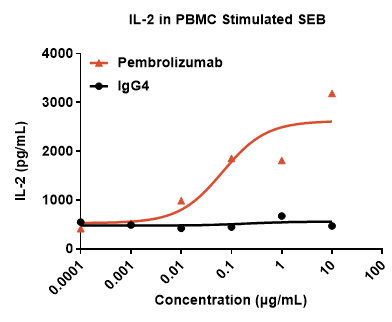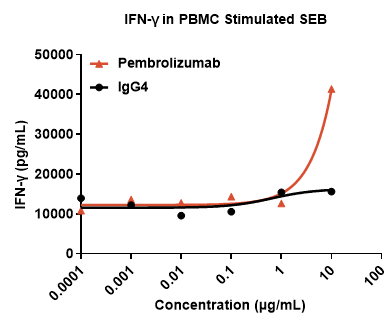Excessive activation or suppression of immune cells is an important factor in the occurrence and development of immune diseases. Primary immune cell experiments can more accurately reflect the activity of antibody drugs in vivo. Primary immune cells (PBMCs, T cells, NK cells, etc.) can be stimulated by various activators such as CD3/CD28, IL2, PHA, LPS, SEB, SEA, DC, and others, or through mixed lymphocyte response (MLR). Evaluating the activation or inhibition effects of antibody drugs on immune cells by detecting cytokine release, immune cell proliferation, or cell surface marker expression is an important method for in vitro screening of antibody activity.
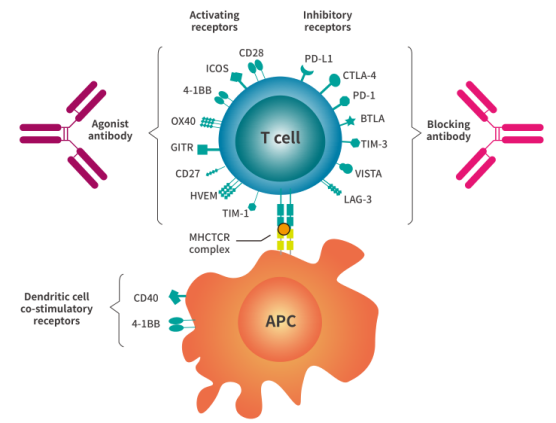
Case: The evaluation of the activation effect of Pembrolizumab on T cells.
Fig1. Pembrolizumab enhanced IL-2 and IFN-γ productions
in PBMC stimulated by SEB
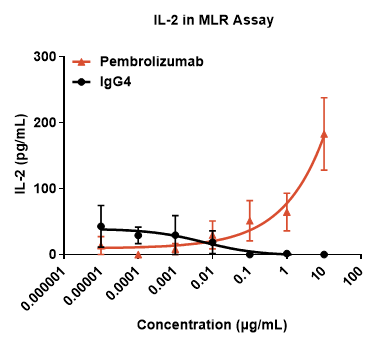
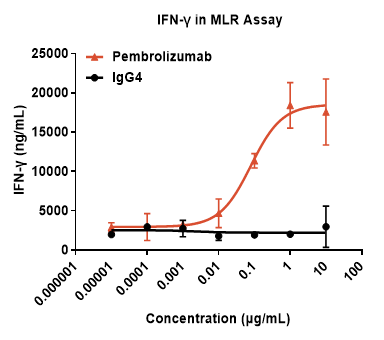
Fig2. Pembrolizumab enhanced IL-2 and IFN-γ productions in MLR assay
GemPharmatech Advantages
Extensive library of target cells (over 300 cancer cell lines and humanized cell lines) in BSL-2 level laboratories.
Free provision of comparator antibody therapy for common viral infections.
Two available systems: induced DCs and commercialized DCs.
Abundant PBMC donors with locking support.
Extensive project experience.
Meets regulatory requirements for new drug application submissions.
Adherence to strict laboratory data storage standards for experiment traceability.


